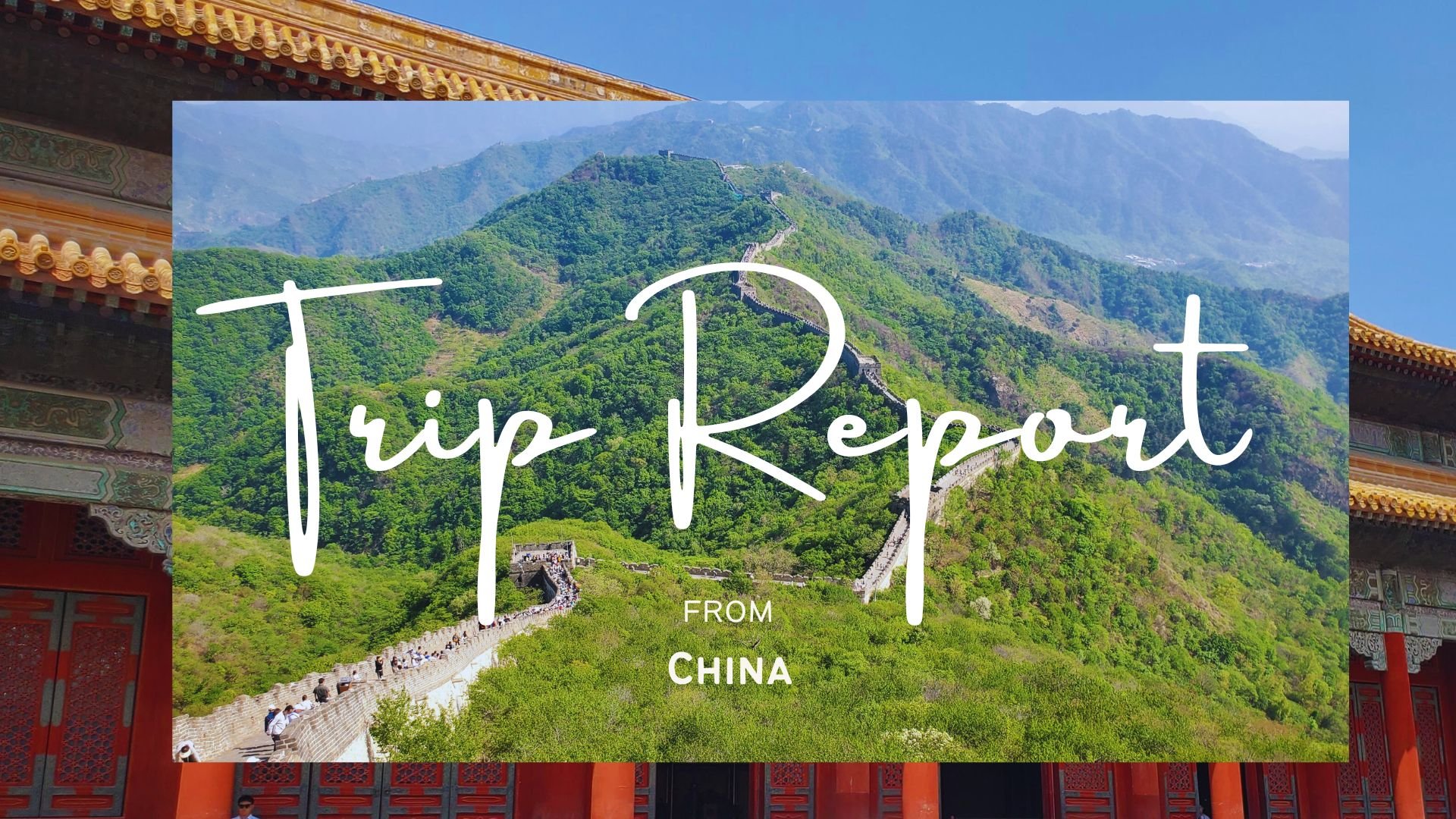20 Recommended Reasons For Deciding On China Tour Websites
Wiki Article
Top 10 Tips To Deal With copyright Items When Shopping In China
1. Know the High-Risk ItemsTip Watches, watches, bags, electronics, and designer clothing are the most frequently counterfeited. They should be scrutinized with caution.
Pro: Helps focus your attention on copyright products.
Con: It is possible to be skeptical of genuine products if you don't have the proper knowledge.
2. Genuine product information can be found through research
Tips: Get familiar with the brand's logo and stitching, as well as the material and other packaging information prior to shopping.
Pro: Improves your ability to recognize subtle differences between genuine and fake products.
Con: Time-consuming for those who don't have a good understanding of the products.
3. Shop at Trusted Stores
Tip - For expensive items buy only from official brand stores and reputable malls.
Pro comes with receipts and warranties and assures the authenticity of products.
Pro: Some products are more expensive at the markets or in smaller stores.
4. Labels & Tags: Inspect them
TIP: Watch out for misspellings, inconsistent fonts, or low-quality materials on labels and packaging.
Pro: A fast method to spot fakes.
Con: High quality counterfeits can closely mimic the authentic details, making detection difficult.
5. Be wary of "too good to be true Price"
A red flag is a price that is too low for luxury products. The most expensive luxury items are not often sold at a price lower than the retail price.
Pro: It helps you avoid scams that are obvious.
Contra: A few sellers make use of moderate prices to make counterfeits appear more convincing.
6. Ask for Certificates of Authenticity
Tip: For items such as jade, antiques or branded goods, request documentation proving authenticity.
Pro: Adds an extra layer of confidence in your purchase.
Con: As certificates are susceptible to being fakes, this method of authentication isn't foolproof.
7. Try before purchasing
Request to test expensive electronic devices before making your final decision.
Pro: Confirms its functionality and high-quality.
Cons: The seller might not permit testing or the tests could be superficial.
8. Get Antiques from the Experts
Tips: Antiques that are authentic require extensive knowledge or the verification of an expert. Do not buy them unless their authenticity is certain.
Pro: There is less chance of being scammed by a fake.
Con: Miss out on visually appealing, but inauthentic, decorative things.
9. Make use of a Local Guide that You Can Rely on
Tip - A local guide familiar with local markets may be able to assist in identifying trustworthy vendors.
Pro: It will save you time and decreases the risk when you shop in unidentified markets.
Con: Guides can expect a fee or commission. This can be added to the cost of your trip.
10. Trust your Instincts
It is a great idea in the event that anything feels wrong, be it the behavior of a vendor, quality of the product or price.
Pro: You're protected from a costly purchase.
Con: Your over-cautiousness can cause you to miss the best deals.
The benefits of avoiding copyright products
Durability: Genuine products are stronger and give more value.
You can rest assured that you won't be swindled or deceived.
Legal Safety: Some countries penalize travelers for bringing copyright back home.
Supporting genuine brands helps to keep a business in good standing.
The downsides of avoiding fake products
The authentic products are typically more expensive.
Limited Availability : Genuine products might not be readily available in street markets and smaller stores.
Missed Bargains: Some counterfeits are of high-quality and provide an excellent value for the money.
By following these tips, you will be able make the most of shopping in China and make informed choices about genuine or copyright. See the recommended uncover the history of this landmark for blog examples including honey lake country club, mount li a royal garden since the zhou dynasty, anren ancient town, wang zhaojun one of the four beauties in ancient china, eating in zhengzhou, eating in dunhuang, ancient dapeng fortress, shopping in kashgar, binhai aircraft copyright theme park in tianjin, shopping in suzhou and more.

Top 10 Tips For Seasonal Visits To Temples That Are Renowned In China
1. Visit in the Off-Season Tip for Autumn/Winter: If you are planning to visit famous temples during the off season (autumn/winter), which is usually between November and February, think about visiting them during the off season. This is the time that there are less people around and the temperatures are lower.
Pro: It is less crowded. It is a tranquil and contemplative space.
Cons: The weather may be colder than usual, which could make temple tours in the outdoors less enjoyable.
2. Be Prepared for Weather Extremes
Tip: Temperatures can differ greatly during different seasons. The temperature can differ greatly across seasons. Be prepared.
Pro: Prepared for any weather situation, you'll feel comfortable on your visit.
Con: Having to pack for seasonal extremes is inconvenient when you are traveling in a small amount.
3. The seasons of Spring and Summer Visits for Vibrant Flora
TIP: Visit temples in the early days of spring and during summer. It is during this time that you will find lush gardens, beautiful flowers, and landscapes all around.
The beautiful scenery adds to the enjoyment of visiting temple grounds.
Con summers can be very hot and packed on holidays, particularly the national ones.
4. Take into consideration festivals and special events.
Tips: Plan your visit to coincide with traditional holidays like Chinese New Year (January/February) or the Mid-Autumn Festival (September). These days are a time for special ceremonies, rituals and an opportunity to experience the temple's vibrant culture.
Pro: Temples are full of traditional and lively events. They provide a unique experience.
Con: Temples may be extremely crowded during the festivals, and the costs of accommodation may increase.
5. Avoid Peak Holiday Seasons
Tips: Avoid visiting during the high tourist season (e.g., Chinese New Year, Golden Week in October) when temples can be packed with local and international tourists.
Pro: More peaceful visits, without the crowds providing a more spiritual experience.
Con: You may be missing out on certain festival activities during peak hours.
6. Make sure to check for winter closures of Temples.
Tip: Certain temples may close or have restricted hours in winter months, especially if they are located in remote areas or the northern regions. Always confirm this in advance.
Benefits: It eliminates trips that aren't needed and lets you schedule other activities in advance.
Con: Certain temples could have hours that are reduced or entirely closed during renovations, leading to disappointment.
7. Early Morning Visits to the Beach in the summertime
Tips: If you are visiting during summer, be sure to arrive early in the morning to avoid the intense midday heat. Temples are usually open from the dawn hour, and it is peaceful with fewer visitors.
Benefits You can enjoy peace and quiet without the noise of.
Cons Pros: Early wake-up times may not be for everyone.
8. Get ready for the season of rain
Tip: Summer can also bring heavy rains, especially in the southern part of China. Take an umbrella along with rain gear for your trip during this period.
Pro: You can still enjoy the temple's beauty even in the rain.
Con: Rain can cause problems with outdoor activities, and make temples slippery.
9. Fall is the best time to visit temples in the mountains
Tip: The autumnal leaves provide a gorgeous backdrop to temples located in mountains (e.g. Mount Wutai and Mount Emei), as it is a time when the weather is nice.
Pro A. The cooler temperatures make outdoor activities and hiking more comfortable, and the views are spectacular.
Con: Popular temples in the mountains may draw crowds on weekends and holidays.
10. Examine the Lunar Calendar in Specific Cases
Tips: Many temples adhere to the lunar calendar in China Some rituals or occasions are tied to specific dates. Look up the calendar to find important temple events, such as Buddha's birth, the Lantern Festival and other ceremonies.
Pros: Greater understanding of religious practices and unique cultural experiences.
Cons The lunar calendar can force you to plan your trip with more care and might not coincide with events happening at the time.
Benefits of visiting Chinese Temples The time of the year is when you can visit them.
A smaller crowd: Visits outside of the season are a quiet and contemplative experience.
Cultural events: These festival events offer a deeper insight into the local religious and culture customs.
Scenic Beauty: Going to the area during the seasons of spring and autumn may provide stunning scenery and lively gardens surrounding temples.
Enjoy the cooler temperatures of autumn and winter to explore temples.
Pros and cons of visiting Chinese temples in the holiday season
Unpredictable weather : winter can be cold while summer can be too warm and affect your comfort.
Temple Closures - Some temples shut down during extreme weather conditions, or when they operate with limited hours.
People are crowded at festivals: The most popular festivals can bring large numbers of people. This makes it difficult to fully appreciate the temple’s serene environment.
Events with limited activities - Certain ceremonies and events are only held during certain seasons.
If you schedule your trip in accordance with the season it can result in an unforgettable and enjoyable trip. Understanding the changing seasons will assist you in getting maximum enjoyment from your trip, whether want peace and quiet or celebrations. Read the top rated visit this breathtaking landmark for more recommendations including anren ancient town, wuxi a shining pearl of taihu lake, naked marriage in china the most fashionable wedding style for the 1980s, hua diao the most famous shaoxing yellow wine, honey lake country club, popular beijing night markets, eating in urumqi, four gentlemen in chinese culture, the master of nets garden the hall of ten thousand books, tours for the disabled and more.
